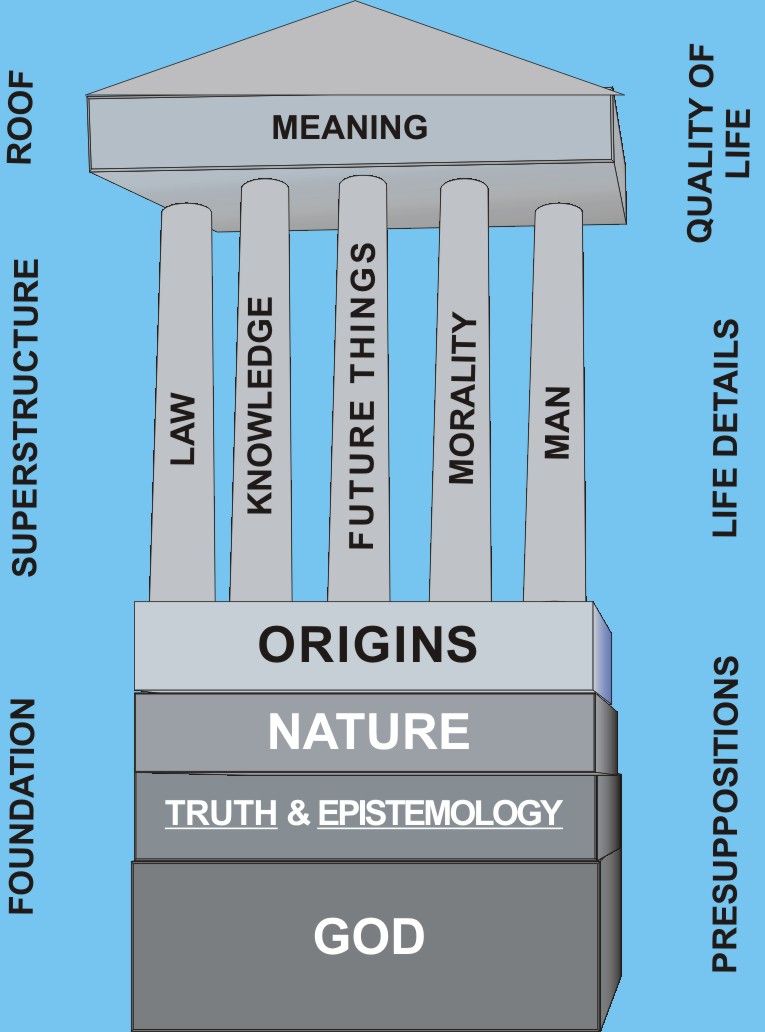 The structure diagram represents logical
rational relationships between a person’s philosophical
presuppositions, their values (shown as the “superstructure” and “Life
Details”), and fulfillment in their life. This structure does not
represent other aspects of people’s personalities, especially their
whole emotional makeup. It only addresses the rational part of a
person and shows logical connections between ideas.
The structure diagram represents logical
rational relationships between a person’s philosophical
presuppositions, their values (shown as the “superstructure” and “Life
Details”), and fulfillment in their life. This structure does not
represent other aspects of people’s personalities, especially their
whole emotional makeup. It only addresses the rational part of a
person and shows logical connections between ideas.